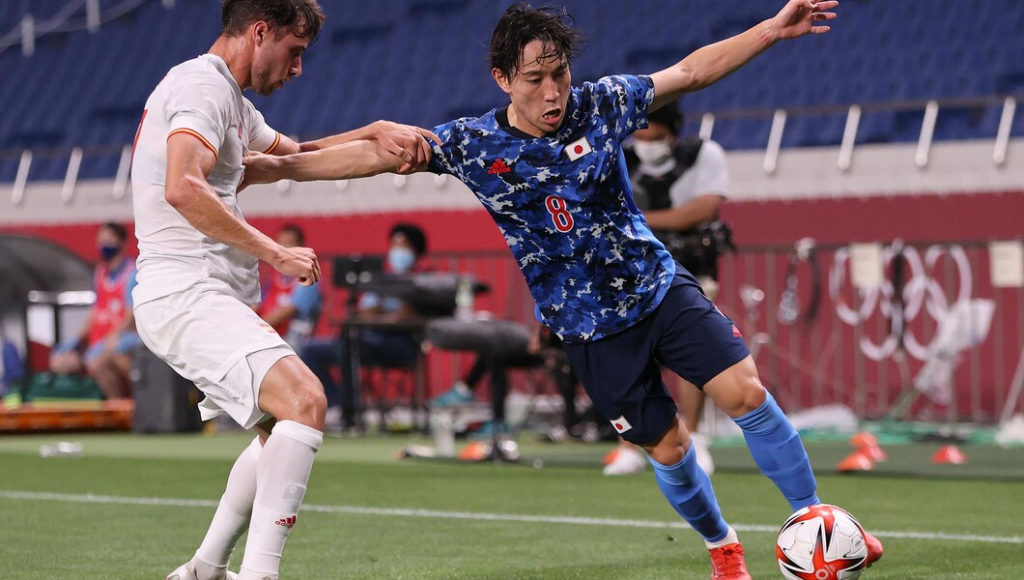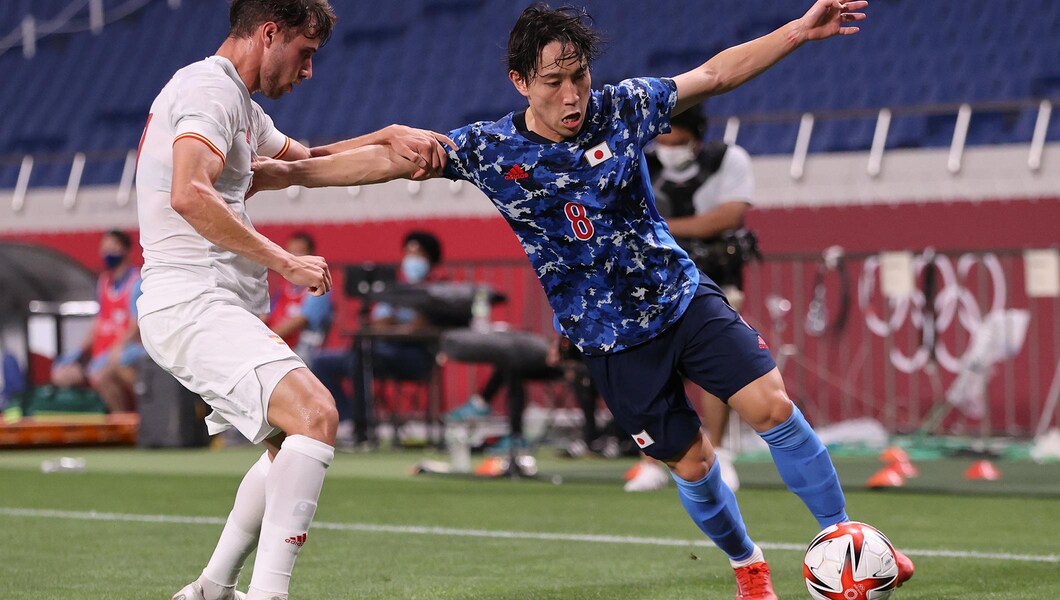In recent years, football has become a national obsession in Japan, but the origins of the country’s love affair with the sport can be traced all the way back to 14 October 1964.
Japan had entered a team for the football competition at the Olympic Games Tokyo 1964, although expectations were minimal, especially after being drawn in a group with footballing luminaries Italy and Argentina.© IOC
To the delight of the local fans, however, the home team twice came from behind to defeat the Argentinians 3-2 and qualify for the quarter-finals.

The South Americans were stunned – “No one can explain it,” wrote Argentinian newspaper Clarín the following day – and Japanese football never looked back. The following year the Japanese Soccer League was formed, a competition that evolved into today’s J. League, one of the strongest in Asia.
Hopes are high that Tokyo 2020 can leave a similar legacy, helping kickstart a rise to global prominence in sports in which Japanese athletes have not always excelled.
In 2019, Japan’s run to the Rugby World Cup quarter-finals thrilled the nation, and captain Michael Leitch is hoping the Olympic Games rugby sevens competition can continue to fuel the growth of the sport at home. “I think the Japanese public will get behind the sevens,” he said in a recent interview with World Rugby. “It is quite easy to follow, it is fast, there are big players, small players, a real mix. For Asia, it is a good starting place to get people into rugby.”
Since 2016, Japan has cultivated one of the world’s finest organisational structures for talent development in elite sports, creating two world-class training and research environments: the Ajinomoto National Training Centre and the Japan Institute of Sports Sciences.

Leading coaches from around the world are invited to spend time at these facilities with Japanese high-performance athletes, while local universities provide them with nutritional guidance, training physiology and sports psychology.© IOC
In addition, the Japanese Corporate Sports System, which encourages companies to employ high-performance athletes, has provided many competitors with the financial support and conditions to keep training. The Tokyo Metropolitan Government has also played its own role in discovering and nurturing junior athletes at a local level, providing 1,034 athletes across the 31 Olympic sports with financial support for training and competition to further their progress.
Not surprisingly then, Japan has begun to perform increasingly well in several new disciplines in recent years, particularly badminton and sailing. Japanese athletes performed exceptionally well in skateboarding and surfing debuting at the Games, and are expected to challenge strongly in karate and climbing.
The sporting legacy of Tokyo 2020 is unlikely to be confined to the elite arena, however. Tokyo 1964 provided a successful foundation to promote recreational sport. Preparations for the Games led to the creation of the Japan Junior Sport Clubs Association (JJSA), which continues to provide opportunities for children all over the country. According to statistics in 2018, the JJSA comprised some 31,000 clubs, with 650,000 children participating.© IOC
Several initiatives are underway for sport to benefit from Tokyo 2020 in a similar manner, injecting enthusiasm for recreational sport across all age groups to encourage healthy lifestyles. Before the COVID-19 pandemic hit, opening hours had been expanded at various amenities and parks, while sports facilities at public schools have been opened to citizens outside class times. Companies that promote sport and instigate best practices are rewarded with official government certification, while the Tokyo Metropolitan Government has created a website enabling them to hire trained instructors for different sports.

Through all these measures, the government is hoping to hit the target of 70 per cent of the city’s adults (aged 18 and above) to practise sport at least once a week. The latest figures show they are well on track to achieve this. In 2020, some 60.4 per cent of adults in Tokyo were engaging in sporting activity, compared to 53.9 per cent in 2012.
To build on the excitement surrounding the Olympic and Paralympic Games, schools across the country organised sports days as part of the Tokyo 2020 School Sports Day Project. In a similar manner, the Let’s 55 programme encouraged the entire Japanese public to try their hands at the 55 Olympic and Paralympic sports being contested at Tokyo 2020.
Sport has long been a focus for Japanese politicians due to its health and fitness benefits for the population. Ahead of Tokyo 1964, a national curriculum for physical education was implemented in schools, leading to a focus on fitness-oriented activities and lifelong sporting participation in the ensuing decades.
This time, the Tokyo Metropolitan Government is particularly looking to use the Paralympic Games to promote sports for people with disabilities, with special support available to schools, clubs and associations that provide activities.
More than half a century later, the many legacies of Tokyo 1964 are still being felt. Despite taking place in an unprecedented context of a pandemic, Tokyo 2020 aims to make a similar impact on the lives of the Japanese public.

